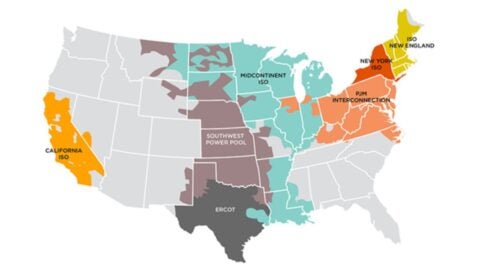Nothing stood in Irma’s way – that’s why she turned into a monster storm

(This post originally appeared on EDF Voices)
I’m watching with concern and awe at the power of Hurricane Irma as it continues to batter the Caribbean with 150 mph winds. If it hits Florida as a category 4 or 5 hurricane as forecast, it will be the first time that two hurricanes of such a magnitude have made landfall in continental United States during a single hurricane season.
This, in and of itself, is astonishing – but Irma also happens to be a storm unlike anything we’ve ever seen.
It’s as if Earth is running a controlled scientific experiment to isolate the relationship between warming of the Atlantic Ocean temperatures and hurricane intensity – with the goal of showing us, with terrifying detail, what happens when rising global temperatures fuel powerful storms.
Warm ocean water drove this storm
Hurricanes thrive on two things: Low wind shear and warm ocean temperatures. Wind shear is a rapid change in wind speed and direction, which keeps hurricanes from gaining strength, and Irma has encountered virtually none.
This hurricane, in other words, formed and moved through an area of extremely warm ocean temperatures with nothing to slow her down.
What can that tell us about the future Atlantic hurricanes?
The current state of the science suggests that, on average, uncertainties in the direction of future wind shear may not cause more hurricanes to occur, but models suggest that the intensity of storms will continue to increase as the Atlantic Ocean gets warmer.
Irma strongest Atlantic hurricane in history
As a pragmatic climate scientist and former NOAA research meteorologist, it’s my job to take all factors into account when considering the link between weather extremes and climate change.
While there are several natural and human-caused factors to consider in a given extreme event, I am nevertheless struck by the fact that we are witnessing the impacts of the strongest hurricane to form in the Atlantic Ocean since record keeping began.
It is not just that Irma achieved such an ominous milestone, but the length of time that it has maintained this incredible strength – longer than any other storm of its magnitude. It has all the signs of a record-breaking hurricane, and this is worrisome.
I called an old friend in Fort Lauderdale yesterday to see how he was doing. He asked me, “What should I do?” My response: “Finish preparing for the storm and then get out as fast as you can.”













One Comment
If you look at it from the perspective that we’ve only had 2 major hurricanes in the past twelve years, though, we’re doing great.